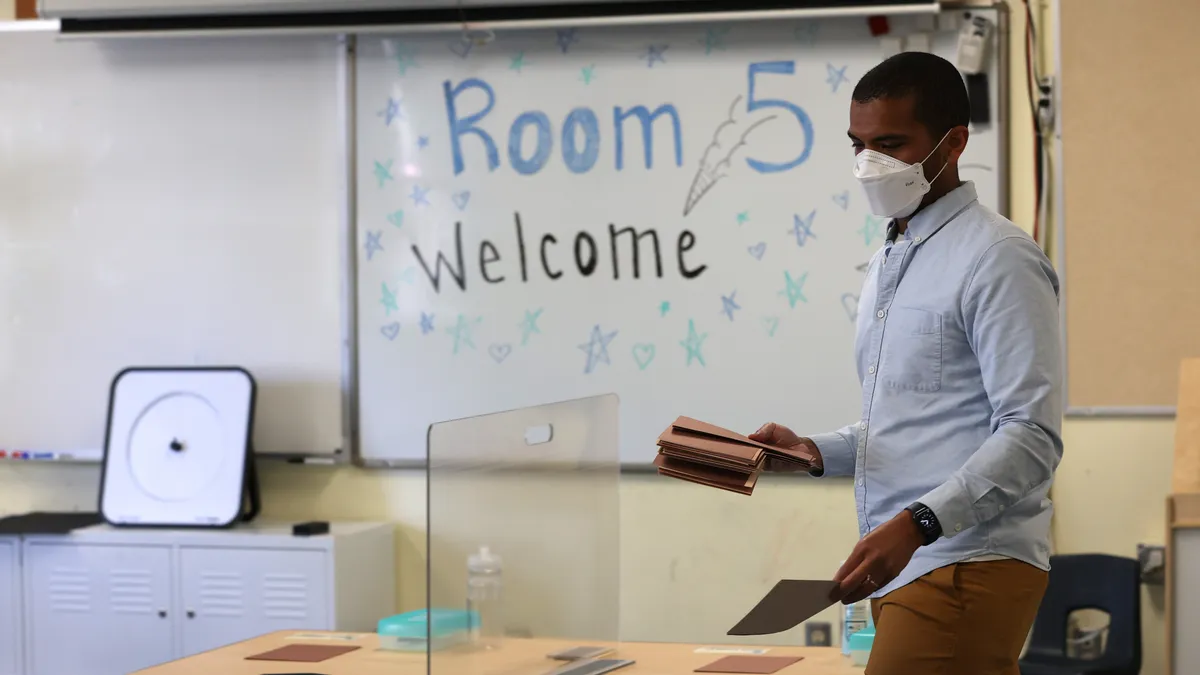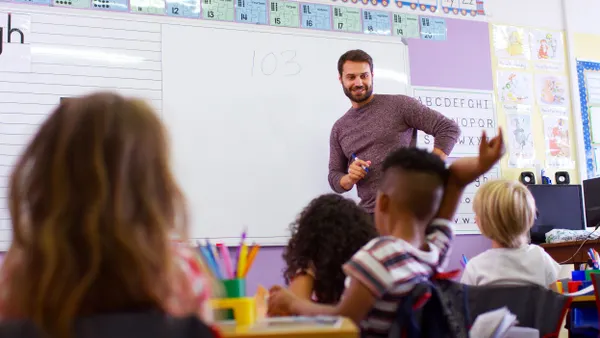Dive Brief:
- As educators return to classrooms amid the ongoing COVID-19 pandemic, they too will need social-emotional support, and a "descriptive inquiry" approach can allow administrators to give them a platform for reaching out and gathering support from school communities to find solutions, Cara Furman, an assistant professor of literacy education at the University of Maine at Farmington and former urban public elementary school teacher, and Cecelia Traugh, dean of the Graduate School of Education at Bank Street College, write for Edutopia.
- Descriptive inquiry uses precise language that avoids judgment while focusing on a specific challenge or purpose, the Furman and Traugh write. The first step can involve a teacher reaching out to their department head to formulate an open-ended question to share with peers, focused around a specific central idea or concern that best represents the issue.
- The strategy also includes a recollection phase where peer teachers share their own experiences, as well as a descriptive review phase where the teacher describes specifics about the issue to give others a better understanding of the situation.
Dive Insight:
In the return to full-time, in-person learning, a lot of emphasis has been placed on the need to provide students additional social-emotional support, but many educators will also need that support.
A March survey of California educators by the Inverness Institute showed teachers felt distance learning created more work. The survey also indicated 59% of teachers felt the public misunderstood their workload requirements, and 20% said they spent additional time figuring out how to use new online learning platforms.
There is also evidence the daily pressures educators face are contributing to a dwindling teacher workforce. A report from the Colorado Department of Education and Colorado Education Initiative shows 6% of teachers were planning to leave the profession, and 2% are taking a leave of absence.
Educators’ feelings of burnout can negatively affect student achievement. To ease the pressure, school administrators can build time into the day to allow teachers to reconnect and collaborate with their coworkers. In addition, the Second Step SEL for Adults program, written specifically for K-12 teachers, gives guidance on how best to support educators.







 Dive Awards
Dive Awards





